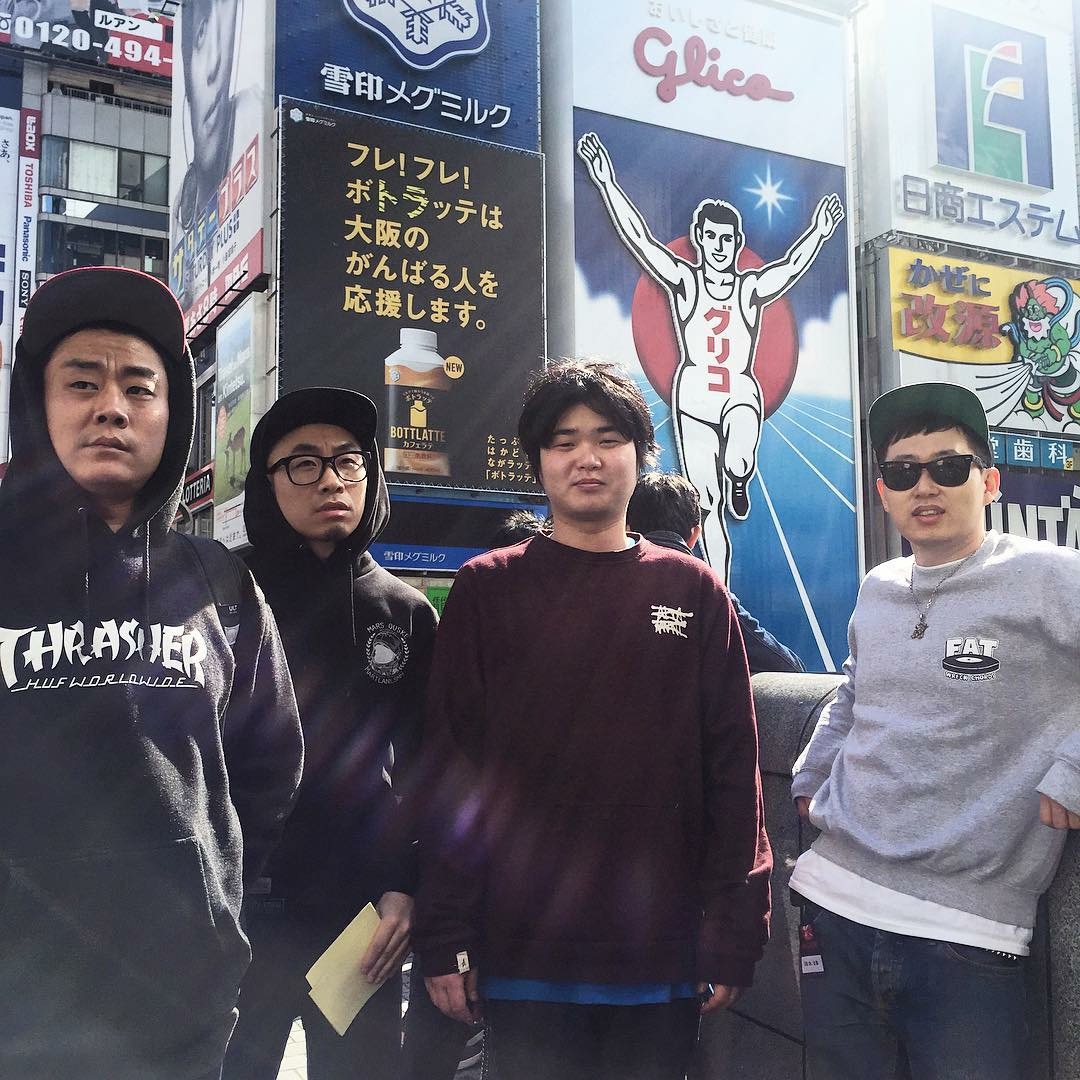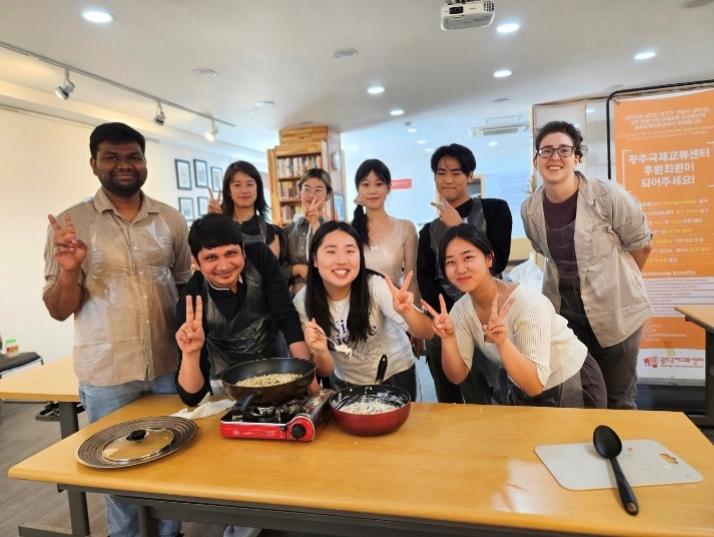The Man Behind the Center
Dr. Shin had me captivated. Some people have a way of doing that. They have a way of making what they are thinking come to life. This past month I had a chance to sit down with Dr. Shin, the current director of the Gwangju International Center (GIC), to ask him about his plans for the future as he prepares to retire from his job as an English Professor at Chonnam National University. I walked into the GIC, met Dr. Shin and framed where I wanted to take the interview. Then his stories took our conversation from there.
Shin Gyonggu (신경구) started his involvement with the GIC in 1999. At the time, the city of Gwangju proposed having an international center, and he was invited to serve on the board as an executive director to assist the chief director while they formed the organization. At the time, he says, the city of Gwangju lacked middle-ground type organizations. There were city-run organizations on one side and activist organizations on the other that worked against what the government was doing. The sides were black and white.
The GIC formed as an outlier to the available organizations for the community to get involved. The GIC was the first international center in Korea; the city did not fully support the center with full funding as they did with other city organizations. As a result, the board of directors and the chief director slowly left the GIC as it became clear that the organization would not easily make money. Dr. Shin stepped in as the chief director around the year 2000.
But before Dr. Shin stepped in as chief director of the GIC, we should discuss the significant series of events which led him to that point: a series of events that have made the GIC much more than simply an organization to him. Dr. Shin was born in Seoul and he grew up in the Chungcheongbuk (충북) Province before he came to Gwangju as an airport officer after college. He went to graduate school at Chonnam National University, met a girl, got married (his wife is a music professor at Chosun University) and eventually went to Texas to study English in 1979.
A year and a half later, on May 18, 1980, the Gwangju Democratic Uprising happened and Dr. Shin felt a strong motivation to return to Gwangju. A little over two years after leaving Korea, Dr. Shin was invited back to teach at Chonnam National University and he took the job before he could lose the opportunity.
As a young man, and still to this day, Dr. Shin has been an introverted person. He told me that he would not have been one to be on the front lines of the Gwangju Democratic Uprising, but he still felt an obligation to those who were. The GIC became Dr. Shin’s way of giving back to the city. Even in times when it seemed like too much work or too much money to keep the center open, Dr. Shin would look back to 1980 and realized that he owed something back to the city and to those who gave so much more in the uprising. And due to his introverted persona, he still finds it very hard to give up on anything.So, to this day, the doors of the GIC remain open.
These days, the GIC is doing well. The Gwangju City Hall has come a long way in their funding for the center and they are very invested in the future of the GIC. As more international centers spring up around Korea following the model set by Dr. Shin, the city has taken an intrinsic interest in the future of the organization, including an interest in helping the GIC find a new home downtown that will suit all their needs. Dr. Shin hinted that the GIC will behaving a mid-summer move.
As the GIC continues to grow, so does Dr. Shin; the end of February will also mark the end of Dr. Shin’s 31-year career in the English department at Chonnam National University teaching grammar, language and syntax. While at Chonnam, Dr. Shin has also served as Dean of International Affairs, bringing a tremendous expansion to their study abroad program. As a professor and Dean, Dr. Shin defined his overall role as a facilitator. He was working with a community. It was not his vision or his voice alone that led people; it was the work of many that contributed to the whole. He was a facilitator for students and co-workers to grow on their own, and together the department grew.
Having a dynamic atmosphere to work in, being transparent about what was happening and being, most of all, democratic about where the department was going became hallmarks of Dr. Shin’s style in the workplace. These are also the same qualities he brings as a director of the GIC and he plans on continuing to make these qualities an integrated part of what the GIC is and will become.
The GIC is largely a volunteer organization (with 10 full-time employees) that is very much more than a sum of its parts. As Dr. Shin is able to make the GIC his full-time project, his plans for the organization remain nothing more than an optimistic vision for everything that is possible. The GIC, to Dr. Shin, is not what he wants but rather, what people want from it. It is an organization of function that brings people together. It is an organization built on the trust of everyone involved in it. “Without absolute trust,” Dr. Shin says, “we could not publish one issue of Gwangju News.”
As the conversation shifted to talk of the future, Dr. Shin told me about hishope for local, young, talented people to remain in Gwangju. As Gwangju is not one of the more affluent areas of Korea, many of the young, talented people leave the city. Dr. Shin hopes to become a creative attraction for young people to stay and work for the community. He sees the GIC as being a source of world culture and education, even more so than it already is, in the future. As he sits, Dr. Shin maintains a “why not” mentality about the potential of where the GIC can go.
For the time being, Dr. Shin’s full time and energy are devoted to the GIC andhe is reluctant to accept any new positions. When I asked about the 13-year journey of the GIC and if he felt a sense of pride from it, Dr. Shin was quick to dismiss pride. He pointed out that there is a difference between the psychological reward and being proud. The psychological reward can happen at anytime and it is small and constant; pride is something that happens when we stop and become complacent. “When we are complacent, we are going down.” He is a man who is always looking forward. As time itself never stops moving, the GIC, too, must always be continually changing, evolving and growing.
To Dr. Shin, the GIC still has a long way to go, but he always feels rewarded by what he and every person involved with the GIC has done. Pride leads to an expected reward, so he remains humble about his accomplishments. Ashe enters this next phase of his life, Dr. Shin looks forward to growing and working together with the GIC for the Gwangju community. He is very excited for the future of the GIC and he is, above all else, happy.
We looked at the clock. It was seven and two hours had just flown by. Dr. Shin had a date to meet his wife; he shook my hand and asked if his interrogation was over. We laughed and went our separate ways.




